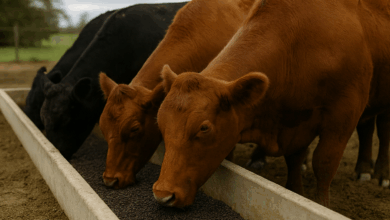Biochar's Potential in Desert Agriculture: Enhancing Soil Fertility in Arid Regions
Analyzing how biochar applications can improve soil fertility, water retention, and crop productivity in arid and semi-arid regions

Agricultural practices in arid and semi-arid regions face significant challenges due to poor soil fertility, low organic matter, and limited water retention capacity. Biochar, a carbon-rich product derived from the pyrolysis of organic materials, has emerged as a promising soil amendment to address these issues and enhance agricultural productivity in such challenging environments.
Enhancing Soil Properties
Incorporating biochar into desert soils can lead to notable improvements in soil characteristics:
- Improved Soil Fertility: Biochar application has been shown to enhance soil fertility by increasing nutrient availability and retention. This improvement supports better crop growth and yields in arid regions.
- Water Retention: The porous structure of biochar enhances the soil’s ability to retain moisture, which is crucial for crop survival in water-scarce environments.
Impact on Soil Microbial Activity
Biochar positively influences soil microbial communities, which are essential for nutrient cycling and soil health:
- Microbial Enrichment: Studies indicate that biochar amendments can enrich soil with plant growth-promoting microorganisms, thereby enhancing soil fertility and crop productivity.
Considerations for Application
While biochar presents numerous benefits, its application should be tailored to specific conditions:
- Soil Testing: Conducting soil tests before biochar application is essential to develop a balanced fertility program that meets crop productivity demands.
- Integration with Other Practices: Combining biochar with other soil management practices, such as the use of organic fertilizers, can lead to synergistic effects, further enhancing soil health and crop yields.
Conclusion
The integration of biochar into desert agriculture offers a viable strategy to improve soil fertility, enhance water retention, and boost crop productivity. By addressing the unique challenges of arid regions, biochar application contributes to sustainable agricultural practices and the resilience of farming systems in these environments.
Sources:
- Effects of biochar on soil fertility and crop productivity in arid regions
- Biochar for Arid and Semi-arid Agricultural Soils
- Biochars in the Desert Southwest: Challenges and Opportunities
- Indigenously produced biochar retains fertility in sandy soil through enrichment of plant growth-promoting microorganisms
- Advances and prospects of biochar in improving soil fertility, biota, and plant productivity: A review
- Biochar as a carbonaceous material to enhance soil quality in degraded lands
- How does biochar impact soils and crops in a semi-arid environment?
- Biochar Production and Characteristics, Its Impacts on Soil Health and Crop Productivity
- Bioreclamation of degraded lands
- Biological soil crust



